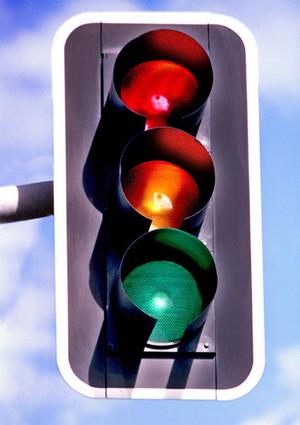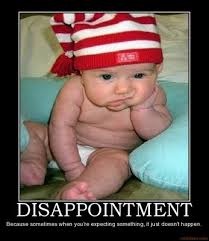Red Light / Green Light / Yellow Light–The Art of Making Choices
August 4th, 2009
Ask your adolescent (as well as yourself) the following question:  When you are driving or when you are with someone who is driving, and the light turns yellow, what do you do? Often times the answer is “I speed up and I go through it.” You might then say, “That’s interesting because in the driver’s manual the instruction is “prepare to stop.” So, what’s the point of this conversation with them? It would be good for them to know that red means stop, green means go and yellow means prepare to stop. Actually, when we see green it means go after checking oncoming traffic from both sides. And when the light is yellow it means prepare to stop unless doing so puts you in the middle of the intersection—then it means proceed and put yourself out of harm’s way. Read more »
When you are driving or when you are with someone who is driving, and the light turns yellow, what do you do? Often times the answer is “I speed up and I go through it.” You might then say, “That’s interesting because in the driver’s manual the instruction is “prepare to stop.” So, what’s the point of this conversation with them? It would be good for them to know that red means stop, green means go and yellow means prepare to stop. Actually, when we see green it means go after checking oncoming traffic from both sides. And when the light is yellow it means prepare to stop unless doing so puts you in the middle of the intersection—then it means proceed and put yourself out of harm’s way. Read more »
Real Guilt / False Guilt
August 3rd, 2009
There is a difference between the two. There are two questions to assess real guilt: did I break the law; did I do something to better myself at the expense of another person’s well being.  If the answer is yes to either of these questions, then the feeling of guilt is very healthy because it tells us we are doing something that isn’t okay. False-guilt is driven by the tyranny of should and it is a consequence of self-accusations that are demoralizing. The experience of guilt in this case is very real—no doubt about it—but the source of the guilt is not based in reality but in our self-berating thoughts that have as much substance as dust bunnies.A friend and colleague of mine, Karen Stevensen, MSW, had said that one of the purposes of guilt is to give us a sensation, a tap on the shoulder so to speak, that whispers to us we need to correct the behavior. Once we acknowledge that, then we can let go of the guilt because it has served its purpose. The purpose of this guilty feeling is corrective in nature and once we change our behavior guilt must be released.
If the answer is yes to either of these questions, then the feeling of guilt is very healthy because it tells us we are doing something that isn’t okay. False-guilt is driven by the tyranny of should and it is a consequence of self-accusations that are demoralizing. The experience of guilt in this case is very real—no doubt about it—but the source of the guilt is not based in reality but in our self-berating thoughts that have as much substance as dust bunnies.A friend and colleague of mine, Karen Stevensen, MSW, had said that one of the purposes of guilt is to give us a sensation, a tap on the shoulder so to speak, that whispers to us we need to correct the behavior. Once we acknowledge that, then we can let go of the guilt because it has served its purpose. The purpose of this guilty feeling is corrective in nature and once we change our behavior guilt must be released.
Disappointments are Bound to Happen
August 3rd, 2009
Baseball has its curve balls, golf its sand traps and water holes; football its blockers. Clouds protect us from the sun and they also bring rain—sometimes of torrential magnitude. We must make room for lamentations; make space to grieve lest we become cynical.
 When we are infants our cries brought the world to us, cry and we were fed, cry and we were changed and cleaned, cry and we were held. We were the center around which others came to meet and serve our needs.
When we are infants our cries brought the world to us, cry and we were fed, cry and we were changed and cleaned, cry and we were held. We were the center around which others came to meet and serve our needs.
Recall, if you will, being two years old, hearing and comprehending “no” in a way as never before. “What do you mean I can’t have that pretty red balloon?” “Why can’t I put this in my mouth? But I want another cookie!!!” Cry we did as we have always done. BUT, it doesn’t get us what we want. So, we cried louder and we still didn’t get what we wanted. What’s going on? It used to work! Who changed the rules? Now we are not only crying as a way to indicate what we want, we are crying because we are NOT getting what we want. So, we cry louder and more persistently. Still not getting what we want. Now not only are we crying as a way to indicate what we want, and not only are we crying because we are frustrated we now are crying because we are confused and cannot get the world to do as we bid. Disappointment… bound to happen.
Our children need to know: disappointments bound to happen, part of life, not an indication of an inner defect! Thwarted outcome… bound to happen. Curve ball… bound to happen. Choppy waters… bound to happen. Not getting what you want… bound to happen. Disappointment is bound to happen. Our sacred charges as parents is teaching our children of its inevitability and affirm for them their innate inner resiliency to prevail.
